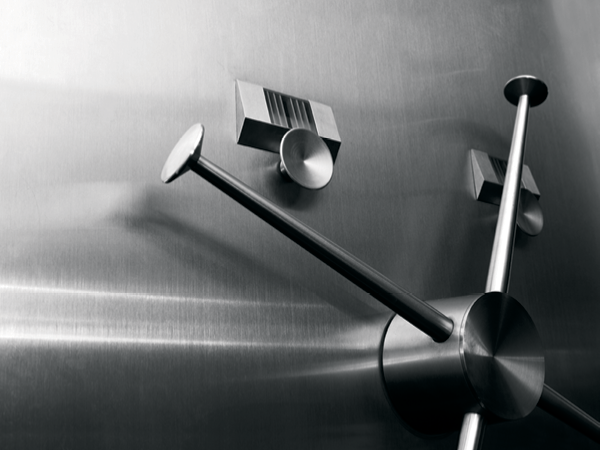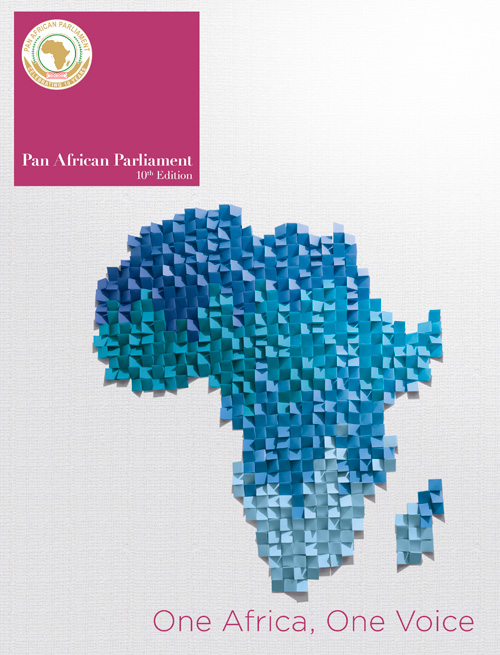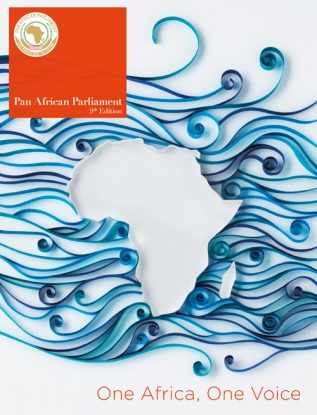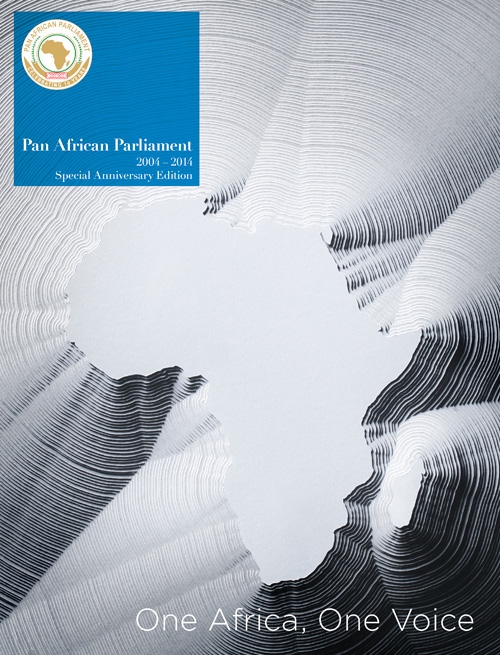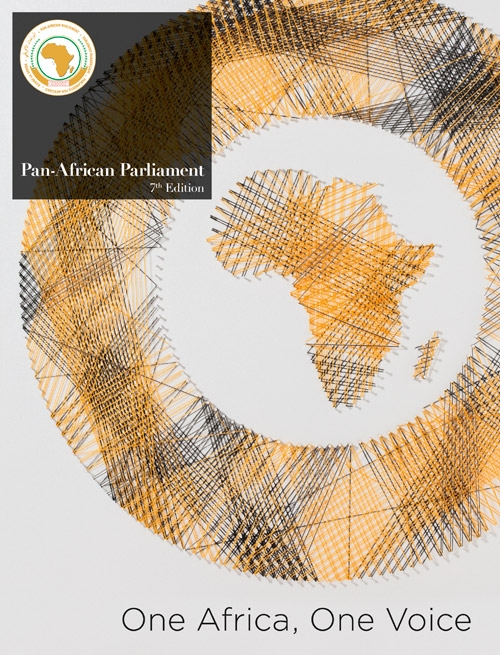
2010 SESSION
During 2010, the Committee on Monetary and Financial Affairs held a statutory meeting from 2–6 August to consider the PAP draft budget for 2011.
The Committee was guided by the prevailing statutory and legal regime governing the PAP budget’s formulation processes, as enunciated in the AU Financial Rules and Regulations, the Executive Council decisions, together with the PAP Protocol and any administrative directives that were brought to the attention of the Committee.
Deliberations took into consideration the overall administrative and political needs of the PAP during its bid to transform into an organ of the AU with full legislative powers.
As stipulated in the PAP Protocol: ‘the ultimate aim of the Pan African Parliament shall be to evolve into an institution with full legislative powers, whose members are elected by universal adult suffrage’.
The Committee made its projected expenditure considerations based on the PAP 2010 mid-term performance report that was provided by the Secretariat.
Upon the adoption of the PAP 2010 budget, it was presented to the PRC and subsequently to the AU for approval. At the end of the approval process the PAP was granted a total budget of US$9 249 735.
The Committee highlighted some of the challenges that the PAP faced in the execution of its budget and core activities:
- The budget allocation for some areas was not adequate and negatively affected the operations of the Parliament. For example, of the initial proposed budget of US$120 000 for AU support to the PAP programme, the union allocated no budget.
- Insufficient staff – in numbers as well as capacity – in key operational areas.
- A lack of compatible financial management systems.
- The continued failure to fund key functions of the PAP’s mandate.
2011 SESSION
The 2011 budget was drafted so that the execution of core operational activities could be facilitated. The Committee proposed a PAP budget of US$13 624 851 for 2011 to the August Assembly.
The Committee made the following observations while discharging its mandate:
- The Secretariat’s administration needed to improve in terms of management and administrative skills.
- Communication and co-ordination in the Secretariat remained a major concern for the Committee.
- Information vital to the functioning of the Committee was not always provided timeously.
- The PAP still had staffing and capacity problems.
- The Parliament’s staff structure was awaiting approval from the AU, which contributed to staffing problems.
The Committee urged the PAP Assembly to consider the proposals in the 2011 budget as well as its objectives. The Committee convened a statutory meeting from 4–7 October 2011 to consider the mid-term report on the execution of the budget for 1 January–30 June 2011.
The budget for the PAP for 2011 was US$9 717 661. A total of US$4 793 081.50 (49%) was transferred to the PAP from the AU Commission for the period under review. The PAP received interest of US$1 845.37 from the average bank balances held during the period under review.
The Committee examined each budget line in order to evaluate its execution and make recommendations with regards to expenditures that seemed unreasonably high. During the period under review, the PAP spent a total of US$4 225 633.57. The amount represents 43.48% of the total budget allocated.
2012 SESSION
At the First Ordinary Session of the Third Parliament of the PAP, which was held from 8–19 October 2012, the Committee submitted their activity report for March 2012–October 2012.
The Committee was represented by Hon Moiseraele Master Goya at the Conference for Ministers of Finance and Health in Tunisia from 4–5 July 2012. The conference theme was: Value for Money, Sustainability and Accountability in the Health Sector. The main aim of this conference was high-level dialogue as well as collaboration between ministries of finance and health. The aim was to commit to concrete measures to enhance value for money, sustainability and accountability in the health sector.
The Committee undertook a study visit to the European Parliament in Brussels, Belgium, to find ways to improve its operations and learn how to tackle the economic and monetary policy matters affecting Africa.
The visit was also used to interact with the EU’s Development Committee – responsible for co-ordinating all development work that the EU funds in developing nations. The Committee’s aim was to understand why funds that were directed to Parliament were channelled through the AU. The EU’s Development Committee advised PAP that it only offers direct funding to institutions that have satisfied the requirements of the four-pillar assessment process.
This assessment reviews the internal control, external auditing, accounting, and procurement procedures of the institution. While the four-pillar assessment was carried out in 2010 and 2012, the PAP failed both assessments.
The 2013 budget was compiled and presented to the plenary in May 2012 and accepted by the AU with a 2% increase
The Committee held meetings with the PAP to discuss the budget. There was no noticeable growth in the proposed budgets for 2013 as the AU gave a directive that budget growth was restricted and the programme allocation remained the same as the previous year.
The 2013 budget was compiled and presented to the plenary in May 2012 and accepted by the AU with a 2% increase from 2012. The 2% increase was extended to all the organs of the AU.
Preparation of this budget posed many challenges. The AU changed the budget cycle and insufficient notice was given to prepare and pass it through the relevant internal structures. Previously, organs of the AU were expected to present the budget in July, but with the new cycle the budget must be presented before the end of March.
The format for preparing the programme budget had changed and the PAP Secretariat needed training on how to implement the new approach. These challenges meant that the programme budget was forwarded to the AU after the deadline. The operational budget was submitted to the AU on time.
In view of the challenges during the preparation of the budget, the Committee recommended that the PAP align its budget preparation process with the new cycle adopted by the AU.
From 3–4 October 2012, a workshop was held to clarify and streamline the working relationship between the Committee and the PAP administration. This would help guide the administrative and financial management of the PAP when executing the budget and ensure the respect of financial rules, processes and procedure.
From 16–17 September 2012, the Chairman of the Committee undertook a mission to Addis Ababa to defend the mid-term budgetary expenditure and present the supplementary budget for the recruitment of staff in the PAP. This followed the approval of the structure by the summit of heads of states in July 2012.
At the invitation of the Committee on Administration and Financial Evaluation (CAFE) to contribute to their findings and investigations on the institutional crisis in the PAP, the chairperson of the Committee on Monetary and Financial Affairs participated in the meeting to add inputs on the CAFE deliberations to find a lasting solution to the administrative and financial crisis in the Parliament.


